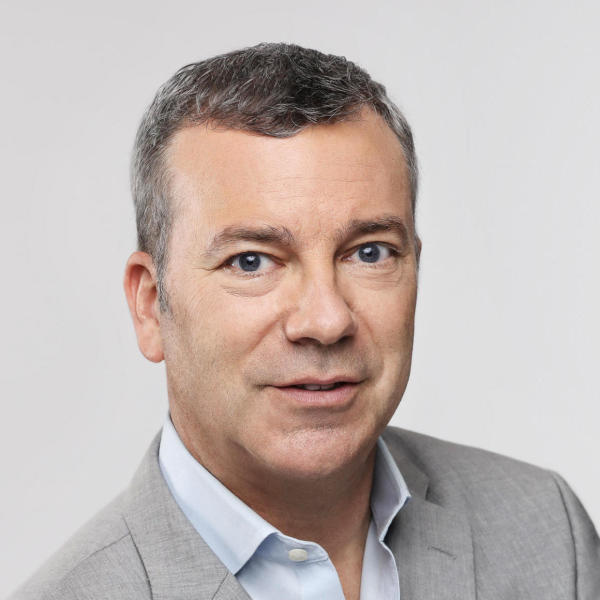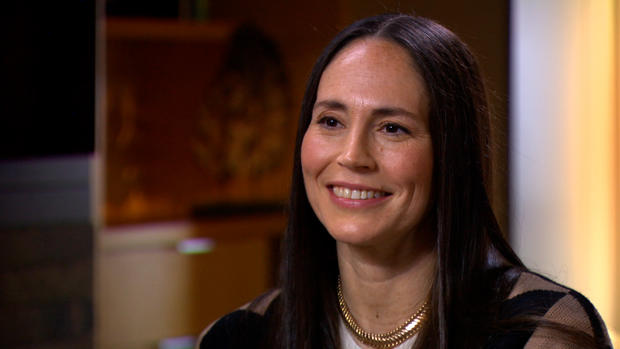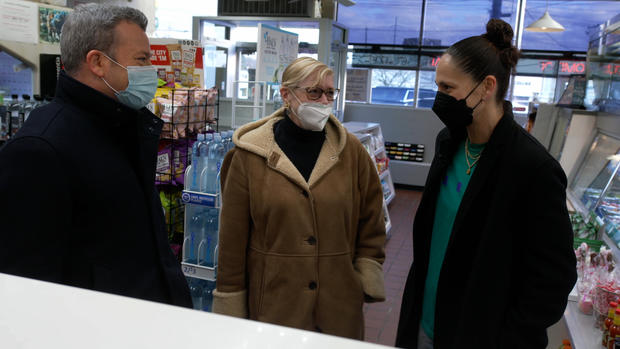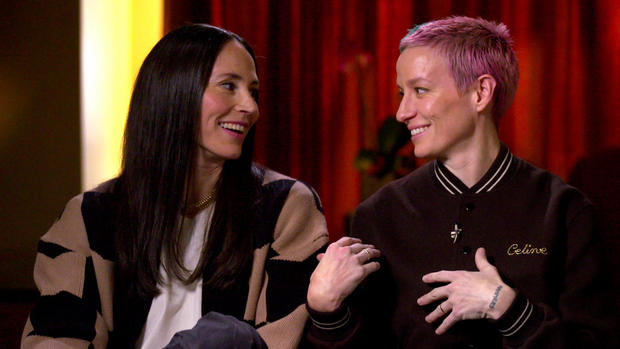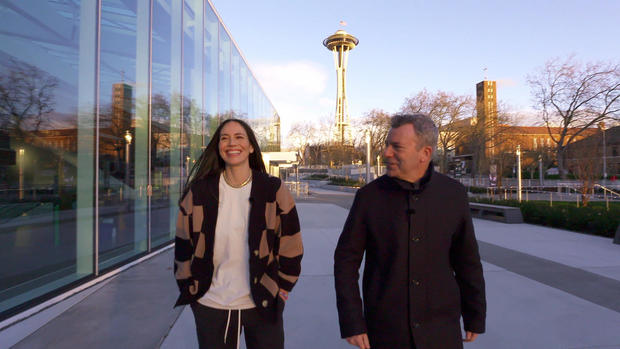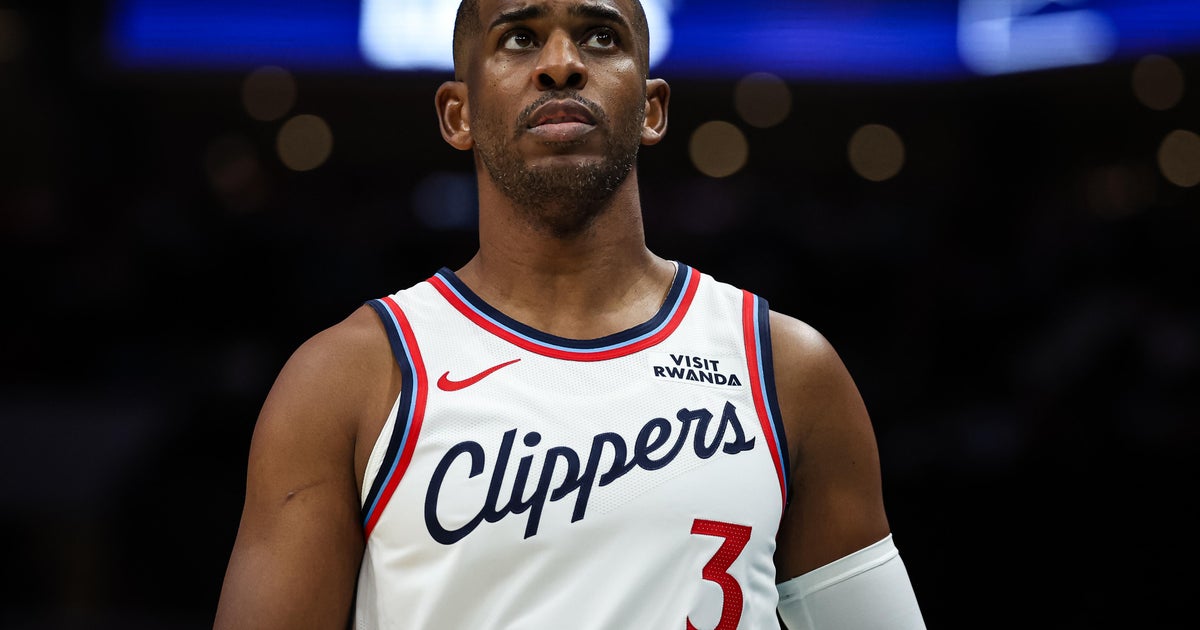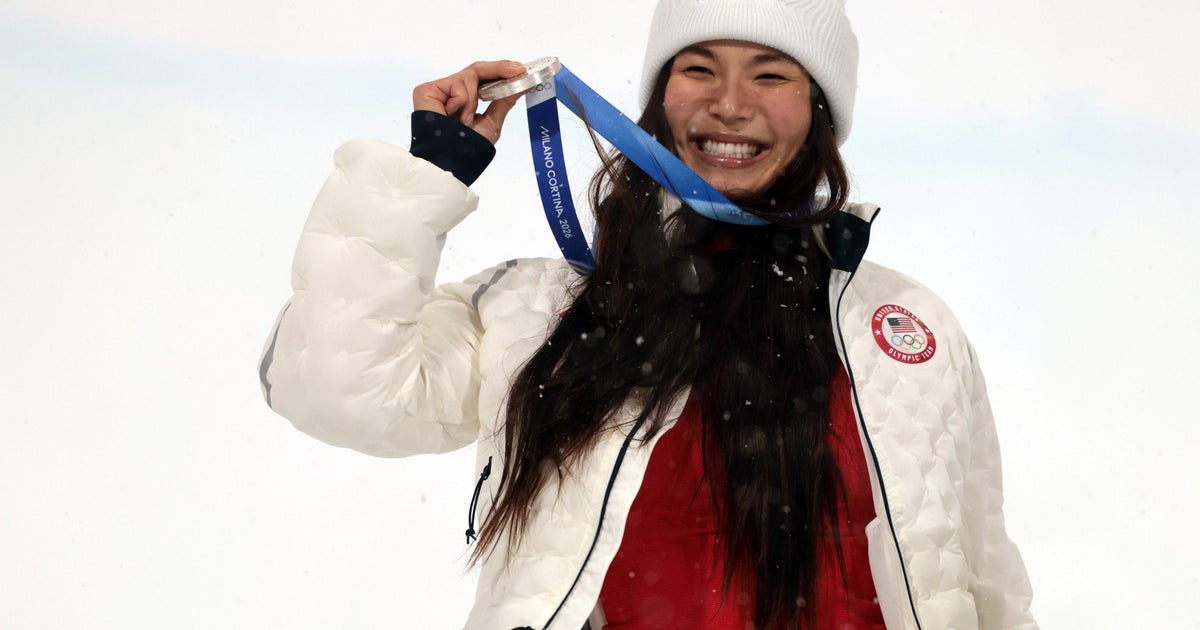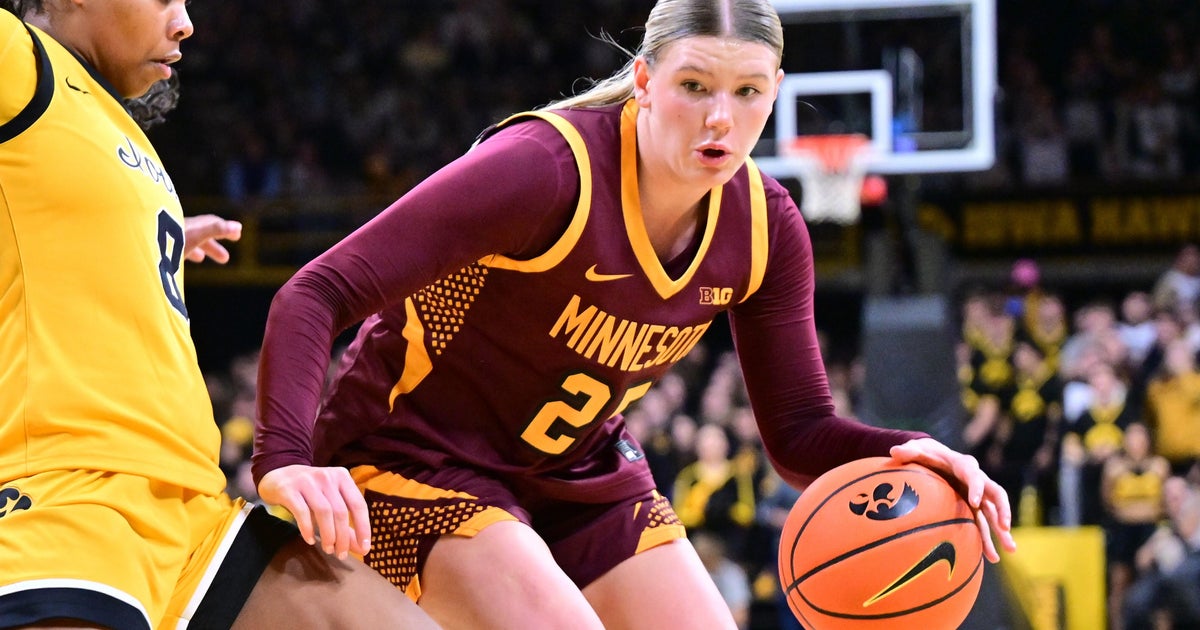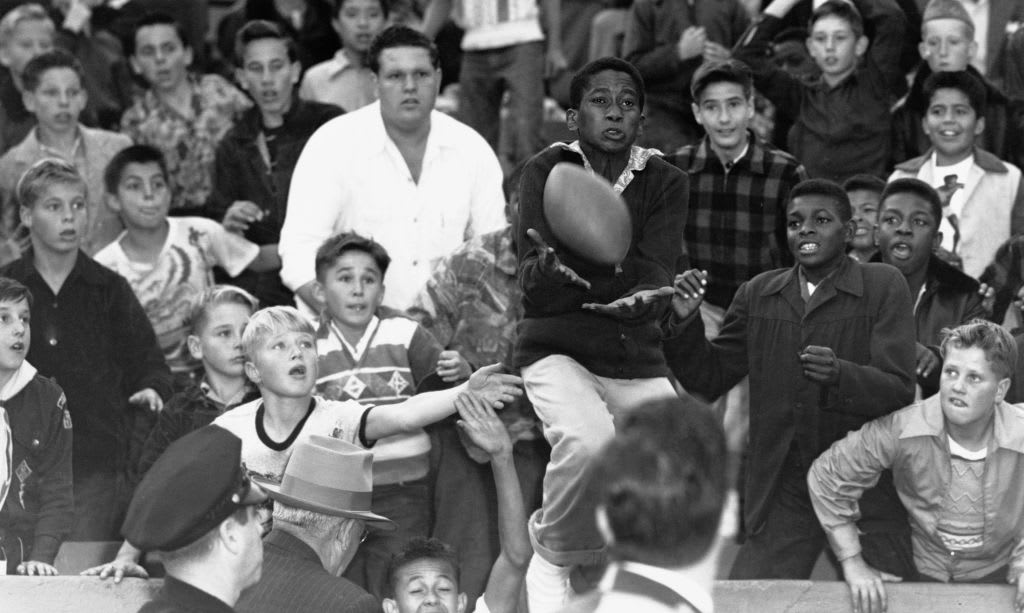Sue Bird on the state of the WNBA, her time in Russia and her relationship with Megan Rapinoe
For at least one more season, basketball fans will be treated to watching one of the sport's generational stars, a fearless New York point guard who plays - performs, really - with crisp precision. Sometimes it's a no-look pass to a teammate, hitting them in perfect stride. Other times, it's a clutch jump shot that goes whispering through the net. Sue Bird is 41 now. She's won five Olympic gold medals and four WNBA championships in three decades and on she goes, poised to start her 19th season for the only WNBA team she's ever known, the Seattle Storm. In that time, she's come a long way. Her league has come a long way. Women's sports have come a long way. And none of that is coincidence.
Elite athletes stretching time, extending their careers like resistance bands; it may be the dominant theme in sports right now.
Sue Bird: When there's more warm up than actual workout, that's when you're in trouble. (LAUGH)
We met Sue Bird in Seattle as she ramped up for still another season.
She enlisted three practice players. Then clocked an hour of conditioning post-workout. Physically, she held up fine. Still, time has a way of announcing itself.
Jon Wertheim: How does the age difference between you and your teammates--
Sue Bird: Oh.
Jon Wertheim: --express itself?
Sue Bird: (LAUGH) In many ways. In (LAUGH) many ways. this past year we traded for a player. So she came into camp. She was like, "Hey, my mom's in town. Would-- you know, like, would you be down to meet her?" And I was like, "Oh, yeah, absolutely." And she was like, "Yeah, you guys have the same birthday." And I was like, "Oh, no way. She was born October 16th?" She was like, "Yeah, 1980." And I was like, (LAUGH) "Wait. What?"
Jon Wertheim: You mean literally--
Sue Bird: "We, like, literally (LAUGH) have the same birthday?" I was like, "Does she wanna get drinks?" (LAUGH) "Oh, my God. My teammate's mom is my age." So that was a blow. (LAUGH) That was a big blow.
Come game time, Bird never stops calling the shots.
Jon Wertheim: We were struck by how much action you-- you commandeer.
Sue Bird: I think it's unique to myself, my position, my level of experience, how well I know this team.
As point guard, she's the equivalent of a coach on the floor.
Jon Wertheim: You're the point guard.
Sue Bird: Yeah. Like, run the show. Make sure people-- are being put in successful positions. I really pride myself on that.
Sue Bird: And that's where I think I can kind of, like, puppeteer a little bit. And then of course I have to play too.
In case you missed it, she dropped that pass through her legs, for a veteran, Bird often plays like a kid. A 5-foot-9 inch perennial All-Star, Bird is the WNBA's all-time assist leader.
Her specialty: the no-look pass.
Jon Wertheim: What do you tell your teammates about anticipating those no-look passes?
Sue Bird: Um, at this point? They know. I don't have to tell 'em anything. They know they're in trouble if they don't catch it.
That take-charge personality emerged at the University of Connecticut, where she played for a relentlessly successful program—and a relentless coach, Geno Auriemma.
Jon Wertheim: What's the most memorable thing Coach Auriemma said to you?
Sue Bird: (LAUGH) Is this, like, an R-rated show, or what? Just kidding. Early in my sophomore year, he kinda, like, pulled me into his office. And he's basically like-- "You know, everything that happens out there is your fault, right?" Everything. If so and so turns it over, that's your fault." "You need to take ownership of everything that's happening out there.
With Bird as floor general, UConn went 114-4 —only four losses—and won two national titles. She grew up one state away.
But Sue Bird is not a typical New Yorker, in the basketball sense. Hers was a fiercely suburban childhood in Syosset, Long Island. We went back with her in February.
Sue Bird: The best was when, like, you might see a couple walking along the fence. They'd venture in, be like, "What's up?" You know, that-- that first-- like, you're sizing them up type of vibe--
Jon Wertheim: You have your own code here? (LAUGH)
Sue Bird: Yeah. I mean, this is Syosset so it's not like it was anything crazy. But you knew.
Jon Wertheim: Played with boys?
Sue Bird: Oh yeah, I was the only girl.
Jon Wertheim: How late did you stay out?
Sue Bird: Like, when it got dark I knew that was probably time, when it was, like, my mom was gonna be callin' my name.
She took us to her favorite bagel joint, and there was Nancy Bird, dropping by to hand off her daughter's mail.
Nancy Bird: You never stop being a mom. I worry about everything.
Jon Wertheim: What do you worry about with her?
Nancy Bird: Are you kidding?
Sue Bird: Do you want me to read you the email I got this morning?
Nancy Bird: Go ahead.
Jon Wertheim: Yeah.
Sue Bird: This is real - this is real life. "Do not walk on manholes or metal grates. A dog was electrocuted in New York City because of the storm."
Nancy Bird: It's the truth.
Sue Bird: Thanks, Mom. (LAUGHTER)
Mom was there when Sue was the first pick in the 2002 WNBA draft. The league was five years old and still trying to find its identity. Bird was going through a similar exercise.
Sue Bird: I was kinda, like, looking myself in the mirror, like, "No, no, no, no, you're not gay. This is not you." So nobody in that moment, not my family, not my friends, nobody knew anything about that part of my life.
Jon Wertheim: What do you think was-- was holding you back?
Sue Bird: I don't have a specific story of someone telling me to hide this. I just kinda knew. Like the WNBA was kind of, like, a "sex sells" type of vibe, right? Where we were feminine and we were putting that out into the universe.
Again, the basketball spoke for itself. It took Bird only three seasons to win a WNBA championship. Her starting salary: less than $60,000; roughly 1% of the average NBA salary. Like most WNBA players, Bird supplemented her wages by venturing overseas in the off-season. She played in the Euro-League before being recruited by a Russian team owner, Shabtai Kalmanovich.
Sue Bird: And he was like, "You know, I have a ton of money." "And, you know, some people like to gamble. Some people like to buy cars. "I like women's basketball. That's where I want to spend my money."
And he did. In Moscow, Bird made her WNBA salary ten times over. That kind of money is why Brittney Griner, another WNBA star, was moonlighting in Russia. Last month, Russian customs officials detained Griner at an airport outside Moscow for allegedly carrying hashish oil and this week, a Russian court ruled she would be held until at least May 19. U.S. State Department officials tell 60 Minutes they haven't been allowed to see Griner in detention. Bird told us her own detour to Russia had its troubling moments too.
Sue Bird: Shabtai was with us for three and, I guess, like, a half of those seasons. He was murdered in our fourth year. I played one more year.
Jon Wertheim: Okay, you-- you say that very casually-- Can we-- can we just (LAUGH) back up?
Sue Bird: I knew that's what you want to talk about.
Jon Wertheim: The-- the man who recruited you was murdered?
Sue Bird: Yes. So he wore a lot of hats.
That's one way to put it. Kalmanovich was a former KGB spy and businessman with a record of operating outside the law. Investigators concluded that his shooting in 2009 was targeted.
Jon Wertheim: The kinda money he was paying could--
Sue Bird: Yeah.
Jon Wertheim: --change people's lives. Did it change yours?
Sue Bird: Absolutely. Like, I'm a millionaire (LAUGH) because of it. And, honestly, I think the more the league grows, the more coverage we get maybe players won't have to go overseas because they'll be making enough money here and I think that is ultimately the goal.
Jon Wertheim: That's a threshold. When WNBA players don't have to supplement their income--
Sue Bird: Yeah. It's coming.
Jon Wertheim: --in the off-season.
Sue Bird: We're right there.
Now 25 years old, the WNBA has come into its own. TV ratings are trending up, as are salaries.
Jon Wertheim: This is not the same league you entered.
Sue Bird: No--
Jon Wertheim: what's the biggest difference?
Sue Bird: Plainly and simply, we've finally kind of embraced who we are. We're-- we're just being authentic.
For one, WNBA players are front and center on social justice. They dedicated their 2020 season to Black Lives Matter. When the owner of Atlanta's WNBA franchise—then a sitting senator—publicly rebuked the players for their stance, they responded by backing her opponent. In Bird's case, authenticity also meant going public about her relationship with soccer star, Megan Rapinoe, now her fiance.
Megan Rapinoe: My twin sister said-- basically she was, like--
Sue Bird: "Is Sue out--"
Megan Rapinoe: Yeah, "Is Sue out?" 'Cause, like--
Sue Bird: You're out--
Megan Rapinoe: --you're so gay. So this is not gonna last (LAUGH)-- last that long.
Sue Bird: I knew what I was getting into.
Megan Rapinoe: You did.
Jon Wertheim: Have you guys gotten comfortable with the term "power couple"?
Sue Bird: No. It's so weird--
Megan Rapinoe: It's so weird. (LAUGH)
Megan Rapinoe: I'm focused for both of us to become, like, a power broker. I think really what we're trying to do is force multiply everything that we can from soccer, everything that we can from basketball and the WNBA. And everything that came from this cultural moment. Like, how can we be a part of really bringing women's sports to where it needs to be?
Jon Wertheim: Where are we with TV coverage, scheduling windows? Where's our TV situation?
Sue Bird: It's--
Megan Rapinoe: Lacking--
Sue Bird: --fluid? (CHUCKLE)
Jon Wertheim: Did I just-- did I just get a glimpse at--
Sue Bird: A glimpse--
Jon Wertheim: --how things operate?
Sue Bird: Yeah.
Megan Rapinoe: Of us?
Sue Bird: Yeah.
Megan Rapinoe: 16:38:22;07 Yeah. Probably. I think what's most frustrating is that this is not a puzzle that we don't know how to solve. We know what makes sports successful. Like, we have to be on TV, so people can see us on TV.
And if growing a new audience for women's basketball means not having to deal with some old tropes, all the better.
Jon Wertheim: These sort of tired reasons why. "I don't like women's basketball because they don't dunk."
Sue Bird: I mean, two things are happening. One, the average guy is, like, sizing us up, talking about, "I can beat you." They can't. And then the other thing that's happening is we're just naturally getting compared to our male counterpart.
Jon Wertheim: You know, one group of fans who don't knock the WNBA?
Sue Bird: Uh-huh.
Jon Wertheim: NBA players.
Sue Bird: I know. And I think-- similar to how I can watch them and be like, "That's a different game. I have so much respect for it," I think they can watch us and be like "Yeah, the game's a little different," But they also see the actual basketball happening.
For Sue Bird, the game has slowed down; experience allows her to see what others don't. Case in point: she champions the mid-range jump shot, a foundation of her game.
Sue Bird: What do you want to know?
Jon Wertheim: Defend it.
Sue Bird: Oh, I can defend it. 'Cause now all you hear is that the midrange is a bad shot. It's, like, just not a valued shot--
Jon Wertheim: The advanced metrics say give me a three or give me a dunk –
Sue Bird: Yeah, exactly. So, like, when the clock is running down and you're down one, and you're given a pull-up J? Like, you need to be able to take it.
We wanted to shoot our shot, too - at a question that's been dogging Sue Bird for decades.
Jon Wertheim: You ever done an interview this long for a non-sports outlet (LAUGH) and not been asked whether you're related to Larry Bird?
Sue Bird: (LAUGH) No, actually. Usually it's the first question.
Jon Wertheim: You wanna tell us about your dad, Larry?
Sue Bird: (LAUGH) My uncle.
Jon Wertheim: (LAUGH) Your uncle, Larry?
Sue Bird: Yeah, my Uncle Larry. I lied and told people he was my uncle from, like, age five to seven. That's, like, a big-- yeah. I got to meet him recently for the first time.
Capital One Commercial
Samuel L. Jackson: Hey fellas, y'all know 12-time all-star Sue Bird?
Sue Bird: Is there some other Bird?
Larry Bird: Yeah, this Bird.
Jon Wertheim: --what was that like?
Sue Bird: First of all, amazing. I kinda was like, "Should I tell him?" And it was my moment and I took it. And I was like, "Listen, Larry. you don't know this but you've been a part of my family for-- (LAUGHTER) for 35 years." And he was like, "It's an honor."
Jon Wertheim: Done.
Sue Bird: There we go. Uncle Larry.
Last year Bird began thinking about joining Uncle Larry in retirement. Following the Storm's season-ending playoff loss, an impromptu chant from Seattle fans echoed around the arena.
Jon Wertheim: How much did that impact your decision?
Sue Bird: Oh, like, a thousand percent--
Jon Wertheim: That moment?
Sue Bird: Yeah. It pretty much made the decision. To hear the fans chant, it was kind of like, "Wait. They-- they know it too? Like, "they want me back?"
Rapinoe was in the crowd that game.
Jon Wertheim: How are you with one more year?
Megan Rapinoe: I was really all for it. I was, like, do what you want. But you should come back.
Sue Bird: She likes going to the games.
Megan Rapinoe: I love going to the games. I was, like, get me that court side at a new arena. Girl. (LAUGH)
Yes, another incentive for Bird's return: she gets to play in Seattle's refurbished arena.
Jon Wertheim: This decision of when to retire--
Sue Bird: Oh, it's tough, man.
Jon Wertheim: Tough, right?
Sue Bird: Yeah. You know, knock on wood. It's tough because, like, the body just keeps going.
Jon Wertheim: You don't wanna be home saying, "That could have been me. I should be out there."
Sue Bird: Yeah. (LAUGH) A friend of mine's sister is always like, "Paris 2024?" And it's like, "I don't think so. But, like, I'm pretty sure no. I'm, like, confident no." But then -- in sometimes, when I'm working out, and I feel good, I'm like, "Well, what's another couple years?" But that seems, like, crazy, right? It's crazy, right?
Jon Wertheim: You're leaving that door open?
Sue Bird: I don't think so.
Jon Wertheim: Paris is nice--
Sue Bird: Probably not. Paris is nice.
Jon Wertheim: You got time. You've got time.
Sue Bird: Do you see? This is what happens, this is where we go.
Produced by Nathalie Sommer and Kaylee Tully. Broadcast associate, Elizabeth Germino. Edited by Matthew Lev.
